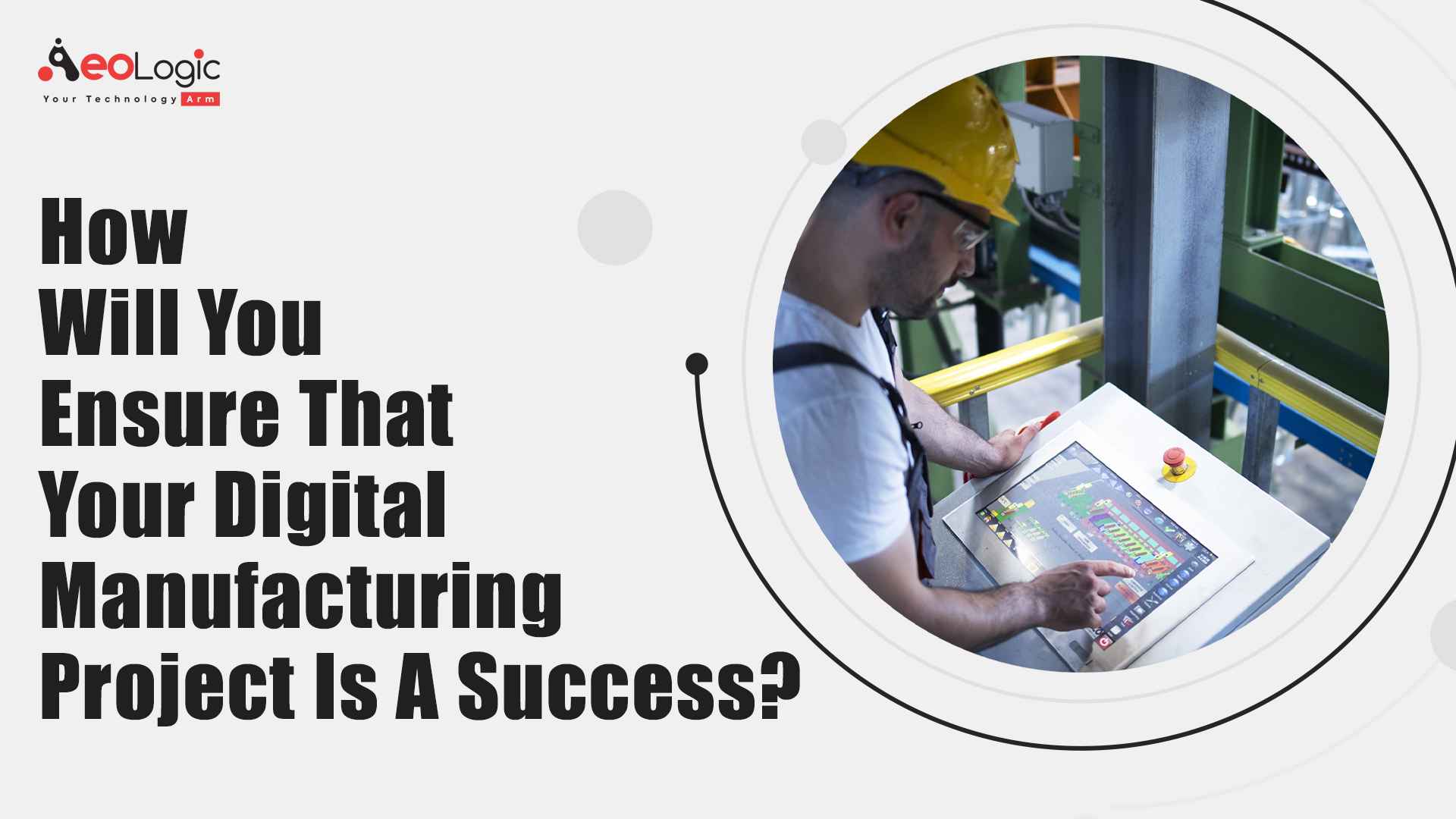The coronavirus pandemic is dynamically producing operations to a degree never before seen. As organizations and leaders obtain to make sure the health and safety of their folks, they are collectively reacting to supply-chain shifts that are impacting sourcing and distribution supply. provider resilience is being brought into sharp focus, and labor shortages are bringing several production lines to a stop. Digital technologies incorporate the data one already has to provide a deeper and better analysis of the operations. with these analyses, one can make better decisions, minimize strain on resources, enhance their throughput, unlock capacity, and so on. To ensure digital manufacturing success in their project, the business has to follow certain strategies.
Also read: Why a Culture of Innovation Is Required in an Era of Digital Transformation
To uncover digital manufacturing success in a project, have a look at the following aspects.
Recognize
It is important to recognize what the ‘demand’ is for a digital solution. Discover what business challenges are affecting you with extreme headaches. This is vital to any digital project. You must know what business advantage will be brought and what value or cost-saving will be accomplished. This will need input from across the organization. It also needs a methodical approach to prioritize what order you address challenges. You also need to comprehend how your business will transform.
Analyze
This directs us to the next level before you’ve even thought of a software platform or solution. You need to analyze your business. you need to have a clear understanding of how processes and tasks are done now. Once this concept is grasped, it is time to look to the future. How will your digital solutions transform your business model? Specifically, if you’re in a highly regulated manufacturing industry such as food & beverages or pharmaceutical, variations need to be in alignment with compliance. It is not just your business model that will transform but also the way people work.
These are the main reasons that the number one point of weakness for major manufacturing projects. It is not that people are the weakness, but the management of change is. When analyzing the business one should consider a new way of working. However, it will affect the workers. One should also consider the resistance to change? It is no great secret that transformation can be one of the toughest situations for people to deal with. One should ensure that they have this as a priority and make sure those who will have their work impacted by the transformation are involved from the very start. With the recognition of the demand and analysis of your business challenges and goals and an impression of how you can move forward, you are now in a position to grow. You can prioritize which challenge to look into first by observing the ROI & IRR. With this information, you can now create your business and justification that will make implementing digital technologies a no-brainer. Whereas making sure that the project continues to concentrate on these characteristics and not the tech, will ensure success.
Having the Right Architecture
A relevant and strong foundation tailored to certify digital manufacturing success in a project is essential. Technology is expected to eradicate and diminish the resistance experienced within the workspace. Therefore, you must implement the right technologies for different systems associated with digitalization in manufacturing. These involve data consumption, changing standard operating procedures, changing employee roles, etc. Having the architecture or correct strategy set in place supports streamlining and smoothing out the shift from a traditional to a digitally-enabled atmosphere. The strategy must account for the amalgamation of different departmental functions, as well as the resistance to change from the employees.
Unlocking Industry 4.0
A selected group of industry-leading manufacturers is digitalizing their business processes. They are revamping their traditional business method into digital transformation. Hence, developing new or improved ways of operating their businesses, incorporating a variety of Industry 4.0 capabilities. This includes the following:
- Connectivity, computational power, and data. For example, blockchain, cloud technology, and the Internet of Things (IoT).
- Analytics and artificial intelligence (AI), reaching from big data and advanced analytics to machine learning and knowledge-work automation
- Human-machine interaction, includes chatbots, automation, robotic process automation (RPA), and virtual and augmented reality.
- Advanced production systems like the use of renewable energy and additive manufacturing.
Also read: How Can Manufacturers Accelerate the Adoption of Industry 4.0?
Conclusion
Ensuring digital manufacturing success is an empowering activity. Though it can also present a few challenges along the way. Not taking action for these obstacles and moving further unprepared can reverse the development path. However, you can avoid any sort of hindrances along the path, provided you are prepared to account for these concerns. One needs a strong support structure that ensures a smooth transition from traditional to digital. With effective digitalization in manufacturing, you become accustomed, scale, and improve according to the requirements.
If you also want to make your digital manufacturing project a success, contact us at Aeologic Technologies.
FAQs
What is the term “Digital Manufacturing”?
Digital manufacturing is an integrated method of manufacturing that is focused on a computer system. The change to digital manufacturing has become a trending concept with the rise in the quality and quantity of computer systems in manufacturing industries.
What are the 3 major characteristics of digital manufacturing?
The three major aspects of digital manufacturing can be classified into the following:
- Product life cycle
- Smart factory
- Value chain management

Manoj Kumar is a seasoned Digital Marketing Manager and passionate Tech Blogger with deep expertise in SEO, AI trends, and emerging digital technologies. He writes about innovative solutions that drive growth and transformation across industry.
Featured on – YOURSTORY | TECHSLING | ELEARNINGINDUSTRY | DATASCIENCECENTRAL | TIMESOFINDIA | MEDIUM | DATAFLOQ









